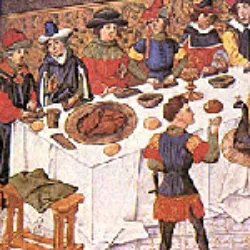Brazilian sweets have their origins in the colonial period

Brazilian sweets have their origins in the colonial period, standing out from the 18th century onwards with the expansion of sugar mills. Before that, desserts were based on tropical fruits drizzled with honey. During the beginning of the colonial period, banana with orange was a main dessert, and guava, bananada, cocada, meringue and roasted or fried banana with cinnamon also stand out during this period. The introduction of sugar brought fruit syrups and jams by slaves who peeled and cooked the fruit. Portuguese religious people adapted recipes with eggs, creating sweets such as quindim and pudding. The significant presence of eggs reflects the fact that Portugal was the main producer in Europe between the 18th and 19th centuries. Each region has developed unique recipes, incorporating local ingredients. This diversity has made sweets an essential part of Brazilian cuisine.
Did you know?










